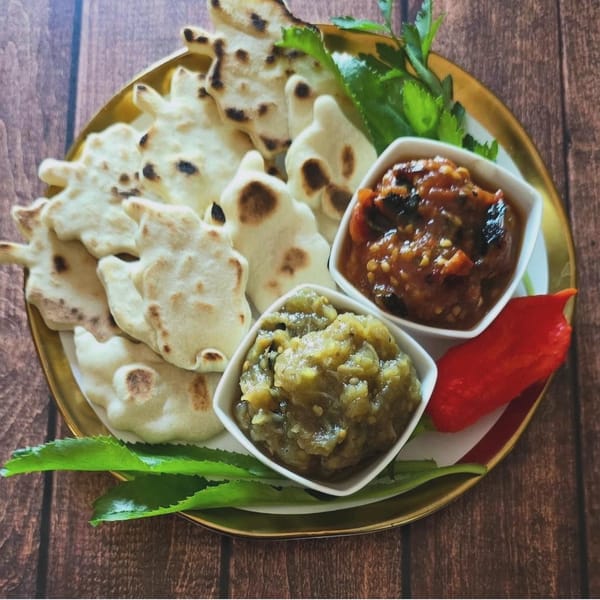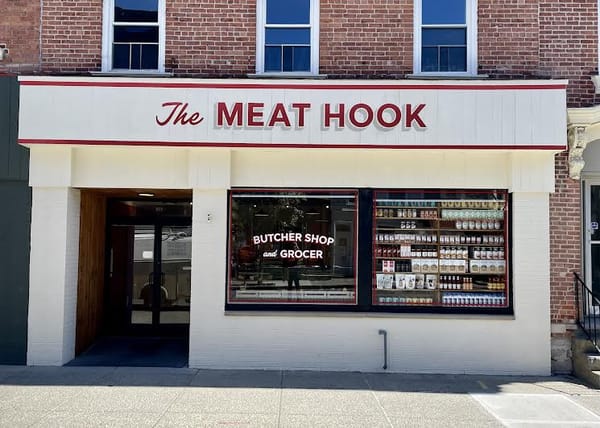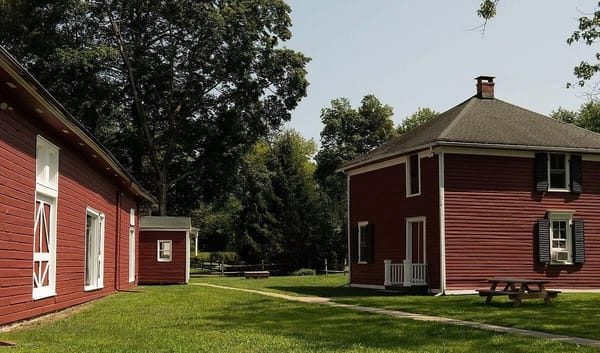AgriCulture bloggers Peter Davies and Mark Scherzer are the owners of Turkana Farms in Germantown, NY. This week Peter writes. It was the morning of our departure for a four-day getaway to New Orleans, Mark’s generous treat in celebration of my birthday. When one gets to a certain aggregation of birthdays something mitigating has to be done. What number this birthday was shall remain a mystery. Let me just say that Gilbert and Sullivan’s refrain from HMS Pinafore: “Oh, yes she could pass for 43 in the dusk with the light behind her,” no longer works for me.
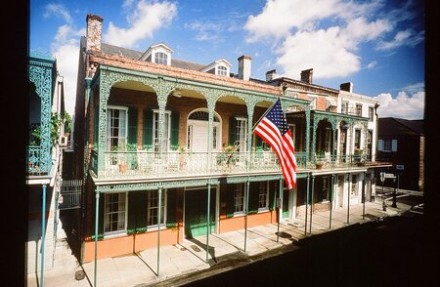
For weeks we had been anticipating our stay in New Orleans’ historic Vieux Carre at Soniat House, a beautifully restored Creole mansion now a sybaritic (even for New Orleans) boutique hotel. We were looking forward to wonderful restaurants, in particular Upperline (presided over by a good friend, Jo Ann Clevenger), Cochon (a predictable favorite for a farm couple), and Galatoire’s (one of the elegant old Creole warhorses), as well as selected humble oyster houses. We greatly anticipated spending our days idly enjoying the city’s rich assemblage of historic architecture in the Garden District and Vieux Carre, and the always entertaining New Orleans street scene -- and just generally dropping out of our usual regimented days inevitably bracketed with farm chores. But leaving Turkana Farms is never easy. To say the least! Unfortunately, our departure date coincided with the only date that would work for getting our geese and ducks to the slaughter house so we could have them in time for Christmas.This meant rising around 5:30 a.m., gobbling a hasty breakfast, getting our winter gear on, and slogging out to the goose pen to get everything set for the 7 a.m. departure to the slaughter house. We had planned it like a military campaign: the trailer and driver were arranged for a week in advance, the trailer delivered the day before and set near the goose pen (so the geese could get used to seeing it), and a plan formed for creating a V-shaped fence leading into the back of the trailer. We were counting on the highly regimented behavior of the geese, fine tuned by our conducting wands, to do the rest. We had also assembled large crates to put the Muscovy ducks in (to separate them from the more aggressive geese).
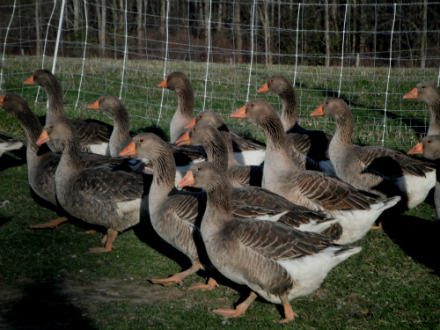
All, to our great relief, went pretty much to plan. The geese were suspicious and put up a bit of resistance to entering the trailer, but they were ultimately managed by the remote control of our wands and goose-stepped into the trailer without the necessity of handling a single one. The ducks, lacking the military discipline of the geese, required a bit more maneuvering and hands-on involvement, but they were fairly efficiently run into the their transport cages, around six at a time, and moved to the waiting trailer. It was to our great relief that we watched the trailer, packed with geese and ducks to the point that there was no room to spare, finally pull out of the Turkana Farms’ Lasher Avenue gate. At last, it was time, as they say in New Orleans, to “laissez les bon temps rouler!” Why Mark and I were going through all of this hassle just prior to departure time to Kennedy Airport illustrates one of the problems with farming in a region that has lost most of its farm infrastructure. There is not a single slaughter house in our immediate region that will process waterfowl. Chickens, yes, but not waterfowl, which, because of their down and pin feathers, require a much more elaborate process involving waxing. Even though we have gone so far as offering to donate the wax and give a lesson in waxing to the farm across the river that usually processes our chickens and turkeys, we have met with an unqualified refusal.
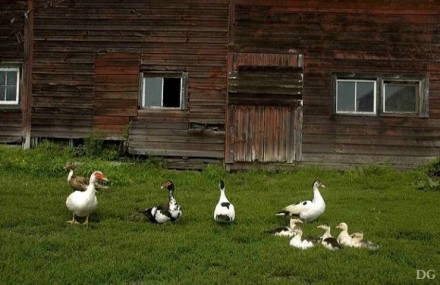
The nearest place we’ve found willing to process our waterfowl is Ben and Jeannette Shaw’s Garden of Spices Farm, a small family operation staffed by them and their eleven children in Greenwich, N.Y., close to 2 hours north of here. Unfortunately, the round trip drive to deliver them to the slaughter house, together with the round trip drive to pick them up once processed to get them to our commercial freezer, means a total of 8 hours of driving. If you add to this inconvenience the costs of renting the trailer and truck and paying for the gasoline and the driver’s time, the quixotic nature of our waterfowl operation becomes apparent. Not only is transportation a problem but reserving a convenient slot in the Garden of Spices Farm processing calendar also is a challenge, hence our exciting prelude to our departure for New Orleans. If you have ever wondered why more farms in our area do not raise ducks and geese commercially, I have just furnished you with a good part of the answer. Increasingly, the problems and costs involved in offering ducks and geese are making us seriously consider whether or not all of this is viable. But we do, I must confess, enjoy having our own goose for Christmas, goose and duck confits for occasional cassoulets, and roasted duck throughout the year. But to return to my story, once we closed the pasture gate on the departing waterfowl-laden trailer, we wasted no time hightailing it back to the house, where we hastily peeled off our farm duds, showered and shaved, pulled on our traveling costumes, and stuffed the final items into our suitcases. We were ready for our great escape. Ensconced in our Jet Blue seats, looking at the ground far beneath us, we found that the farm and its responsibilities were all but forgotten as we looked forward to seeing below us the great curve of the Mississippi, the “crescent” of New Orleans, known for good reason as “the city that care forgot.” And, taking our cue from that eternally carefree city, forget the farm we did. — Peter Davies


